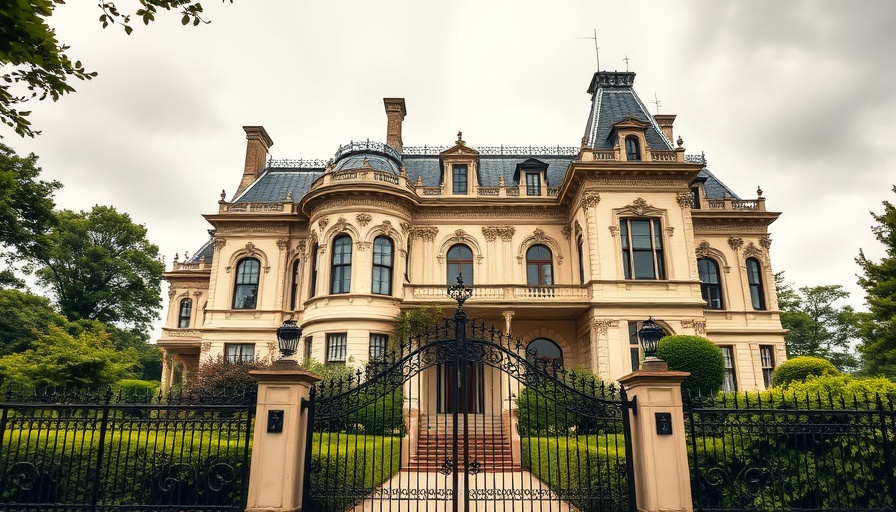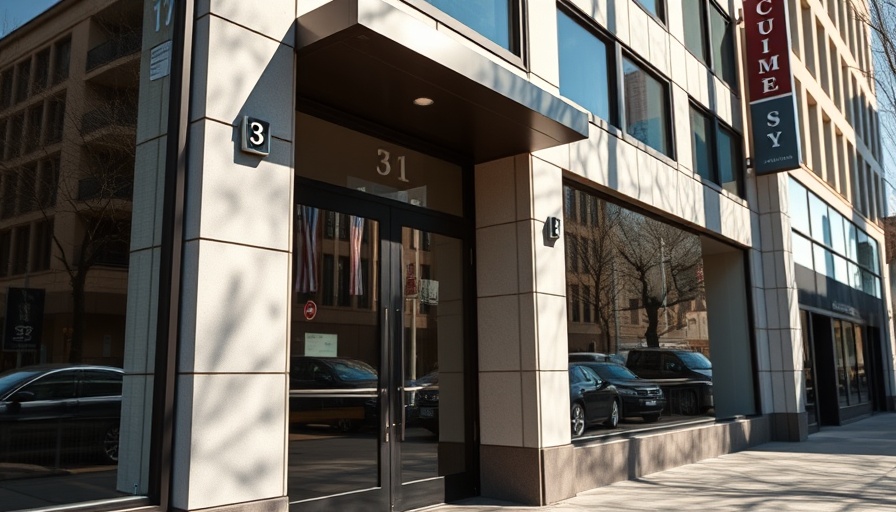
From Hotel Dreams to Educational Reality
In a surprising shift that marked the evolution of real estate strategy in San Antonio, Weston Urban recently pivoted from their original plan to renovate the historic Koehler House into a hotel and instead transformed it into the headquarters for KIPP San Antonio, a charter school. This transition highlights a significant trend in commercial real estate, where adaptability is not just preferred; it’s essential.
Rethinking Space: The Rise of Adaptive Reuse
The decision to repurpose the Koehler House stems from a realization that educational facilities hold greater community value than additional hospitality services in an era dominated by economic uncertainty. This aligns with growing adaptive reuse trends across the country, where economic and community needs reshape conventional real estate strategies. As San Antonio entrepreneurs continue to show resilience and creativity, the focus has shifted towards spaces that foster community engagement, such as schools and services for underserved populations.
The Role of Community Collaboration
This transformation isn't merely a corporate strategy; it illustrates a broader commitment to community development. Local business leaders and school representatives collaborated closely, recognizing that KIPP San Antonio's needs aligned with the city's goals for economic growth and educational advancement. This is an example of how collaboration between businesses, educational institutions, and government can create lasting social impact.
Shifting Economic Landscape of San Antonio
With adaptive reuse gaining traction, the San Antonio local economy is witnessing a significant transformation. As businesses are urged to think outside the box, innovative solutions are arising from challenges, paving the way for young entrepreneurs and startups. Several small businesses in San Antonio are becoming increasingly engaged in community debates about land use, sustainability, and real estate opportunities, driving a wave of reshaped urban landscapes.
Lessons for Aspiring Entrepreneurs
Weston Urban’s pivot offers compelling lessons for aspiring entrepreneurs and existing businesses alike. Understanding the local economy's demands and community needs is paramount for any new venture. As many young professionals contemplate how to start a business in San Antonio, they should seek insights into the interplay between real estate and educational initiatives. Resources abound through San Antonio’s business networks, including the San Antonio Chamber of Commerce, local incubators, and networking events tailored for young entrepreneurs.
Future Trends: What’s Next for San Antonio?
As we look forward, the adaptability seen in the Koehler House project may set precedence for future developments. The trend of reimagining spaces to fit community needs might lead to an influx of charter schools, community centers, or mixed-use facilities that integrate commercial and educational endeavors. These trends are not just opportunities but essential pivots that can fortify San Antonio’s standing as a business-friendly city.
Inspiring Community Action
The story of the Koehler House stands as a beacon for local communities. It encourages individuals, businesses, and policymakers to reevaluate their objectives and craft solutions that cater to the people rather than merely profits. The essence of success will likely hinge on collaboration and a commitment to meeting the community's varied needs. As business climate shifts, maintaining a focus on social responsibility may prove as integral as financial success.
As San Antonio ventures into a new economic phase, let us keep embracing innovation and partnership. Recognizing the value of community-driven projects like Weston Urban’s shift from a hotel to a charter school HQ can only fortify the future of our city. Interested in being part of this community transformation? Join local discussions, attend entrepreneurship events, and contribute your insights!
 Add Element
Add Element  Add Row
Add Row 



Write A Comment